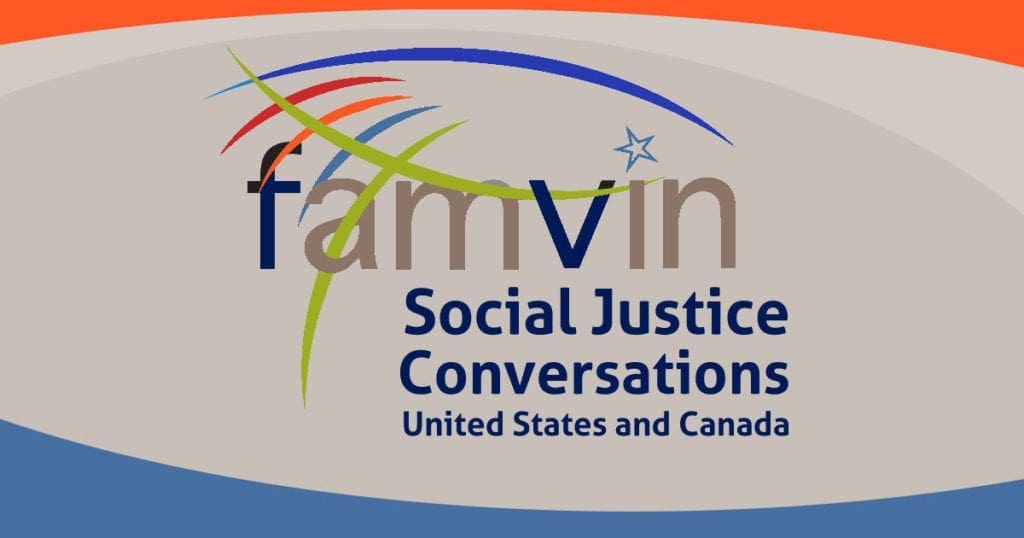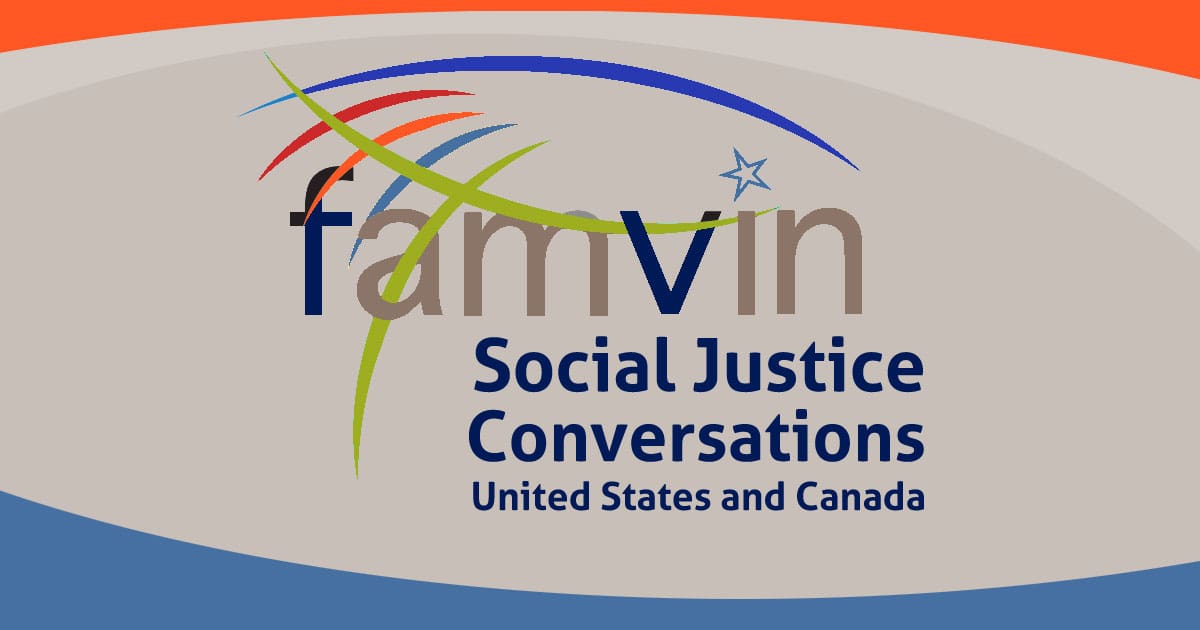An Examen for Racism
Our Vincentian family social justice have been discussing systemic racism in North America over this past year and its effect on the dignity and equality for each person’s human right and desire to live and participate in the common good for all. Systemic change requires a personal transformation in the way we think about an issue such as racism. How can we each address this need to change? What role does our faith play in this effort? Can we begin with the understanding that inaction is complicity?

Let us begin with an awareness of God’s presence.
Become aware of God’s presence, sense His love and compassion. God’s love for creation is universal, including the oppressed and marginalized. Notice God’s love for creation in communities of color, especially in this moment as Black Americans cry out for justice. Ask yourself: When have I failed to notice or respond to the needs of my sisters and brothers of color? Have I turned a blind eye to racial injustice? How is my compliance, or inaction and my sense of fear directly or indirectly contributing to maintain this structure?
Review your participation in systems of racism.
Review your actions and thoughts with attention to how racism or privilege manifested itself. Our actions are often guided by our self-interest or personal biases, which can perpetuate harm. Sometimes we see injustice but choose to refrain from taking actions.
Examine your emotions.
As you review the issue of racism, pay attention to your feelings. What are your feelings? It can be difficult to face white privilege and racism. Embrace being uncomfortable as you feel the plight of your sisters and brothers of color and recognize any compliance in this suffering. Pray for guidance and remember we have the opportunity for transformation through God’s love and compassion.
Look forward.
The environment has a lot to do with how we interact with one another, but a proximity to the issue of people of color is not enough to make you anti-racist. Anti-racism requires active training and continuous learning about systemic racism.
Ask yourself: How can I leverage my privilege to uproot systemic racism?
How can I use my privilege to make space for communities of color?
How can I use my privilege to make room for the transformation to deeper love which God calls us all to?







I pray those who are racist realize that, in God’s kingdom there is no racism, and all of us shall be charged accordingly, irrespective of colour, country of origin, or wealth. May the Lord change their racist hearts.